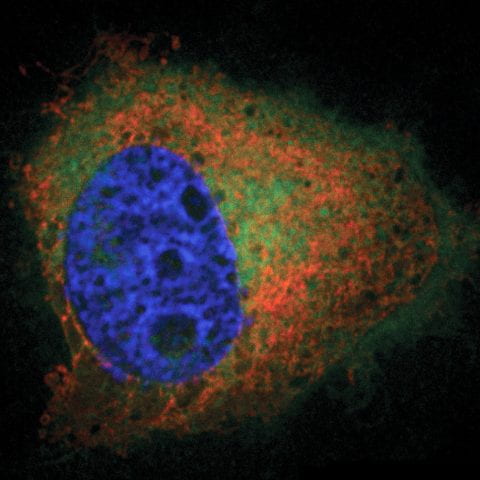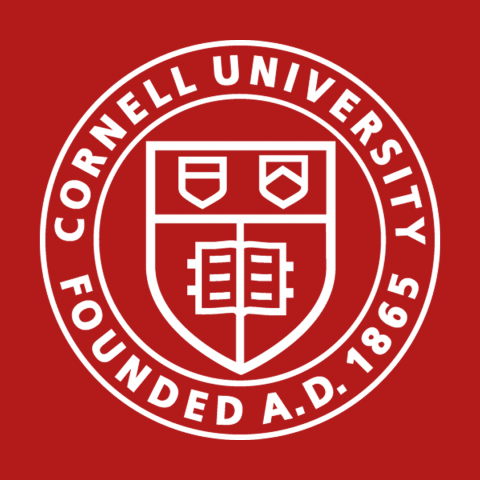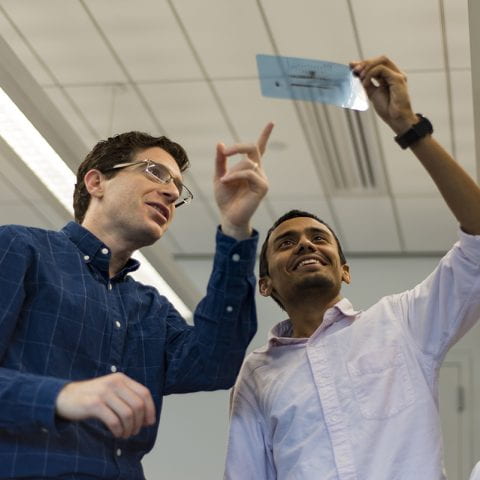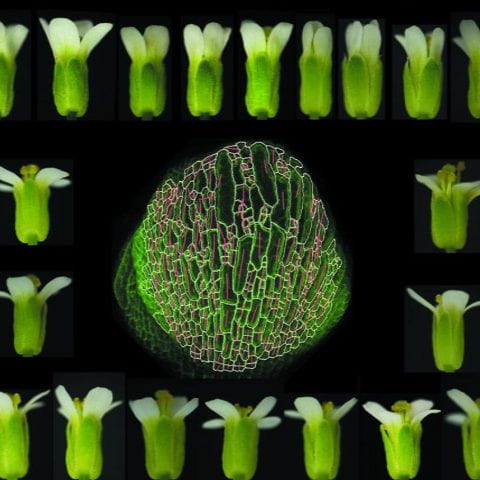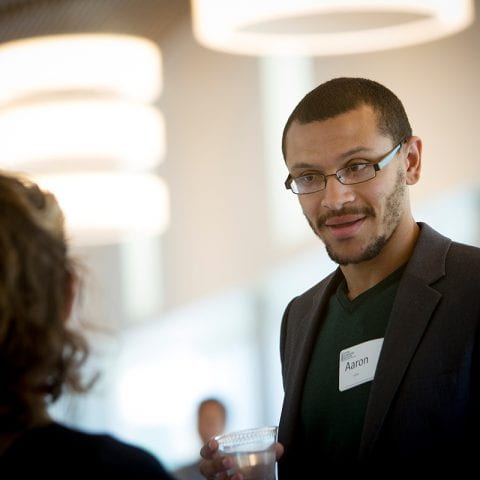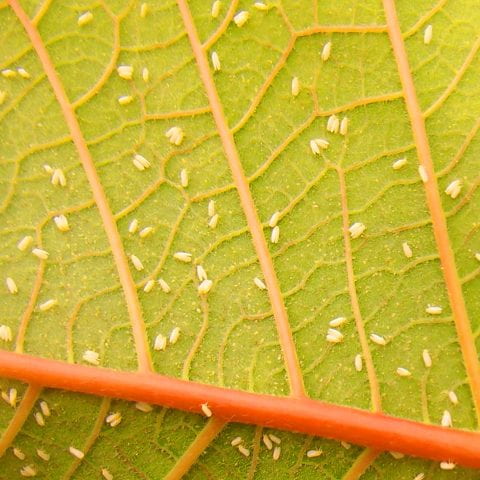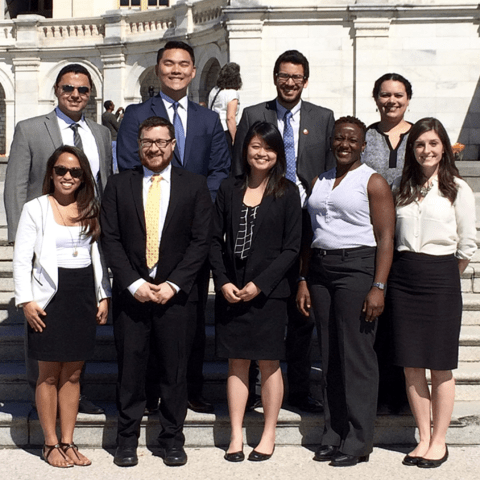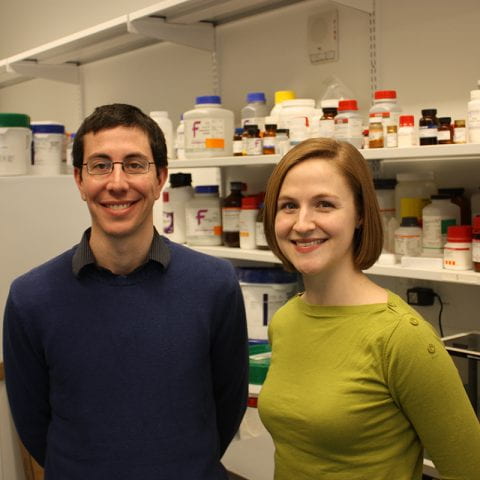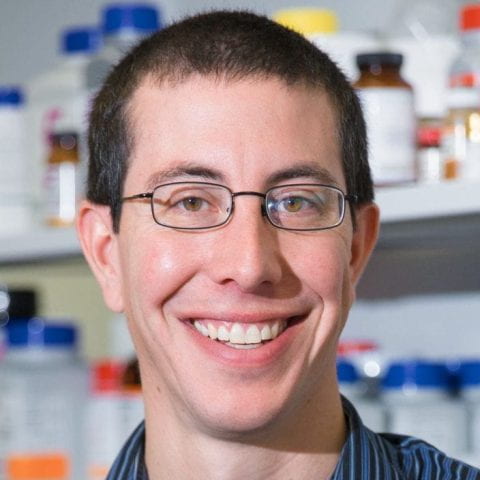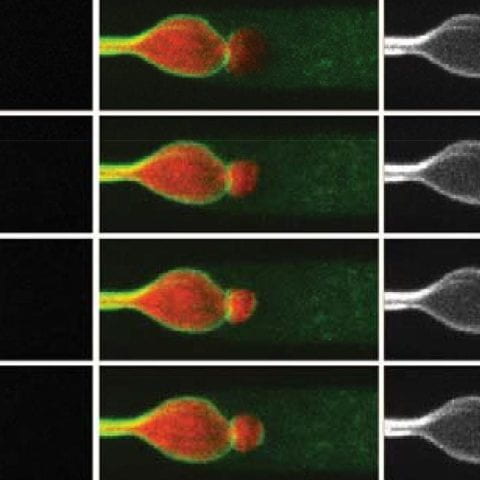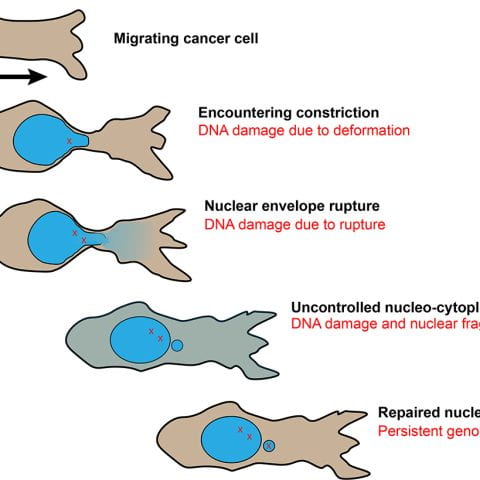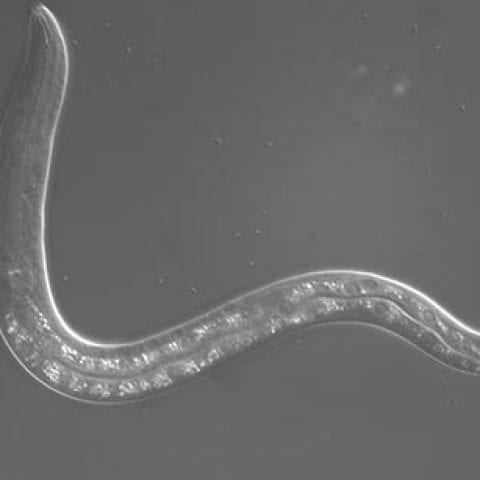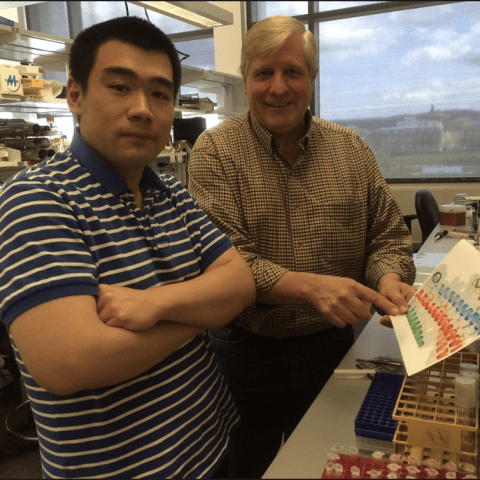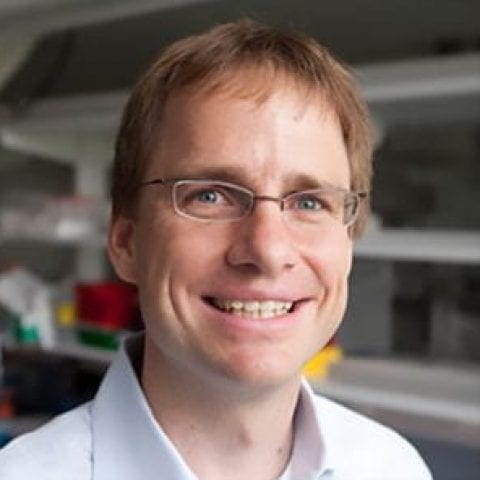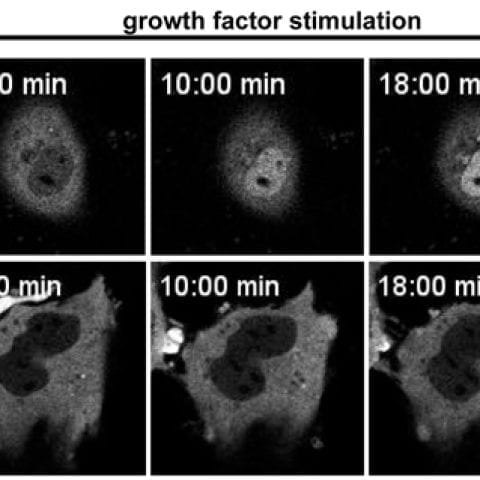News
An essential molecule in cells, called phosphatidic acid (PA), is at the center of a cellular biology mystery. This lipid, or fatty molecule, is a jack-of-all-trades – based on context, it can cause cells to move, divide or commit suicide. Elevated levels of PA have also been observed in many types of cancer as well as autoimmune and neurodegenerative...
Between the cracks in the sidewalk sprouts a thin, green stem with fragile white flowers. It is overlooked by the masses of people who walk past it each day. Unknown to these individuals, however, is the significance of the Arabidopsis plant within the scientific community. In her lab, Prof. Adrienne Roeder, a Nancy M. and Samuel C. Fleming Term Assistant Professor at the Weill Institute for Cell and Molecular Biology, uses the Arabidopsis sepal as a model system to study the spatial and temporal development of...
In chemist Jeremy Baskin’s lab, new and innovative ways to illuminate and visualize the beginnings of lipid signaling pathways are being...
What makes flowers on a plant almost identical, or internal organs remarkably reproducible? A study of sepals in Arabidopsis plants published in the July 11 issue of the journal Developmental Cell has revealed the mystery of how such uniformity occurs. Though the research was done on sepals – the bud that holds a plant’s reproductive organs – the researchers suspect similar mechanisms apply to organ development in all organisms. The study was conducted by an interdisciplinary team led by Cornell...
Graduate students and postdoctoral scholars gathered in Stocking Hall recently to learn about a topic that’s strikingly absent at most universities: how to become a...
Uncovering the details of a 100 million-year-old symbiosis between bacteria and whiteflies opens the door for controlling an insect pest that is rated one of the top 10 invasive species on the...
Steve Halaby, a third-year doctoral student in the field of molecular biology and genetics, is passionate about educating the next generation and recruiting more minority students into science. “We need to invest in STEM now,” he...
Maggie Gustafson is a fifth-year doctoral student in the field of biochemistry, molecular and cell biology and this year’s winner of the Harry and Samuel Mann Outstanding Graduate Student Award. Her research in Chris Fromme’s lab is unlocking the secrets of a protein decision-making process that few knew existed until it was discovered at Cornell four years...
Fromme has been selected as a Visiting Fellow of Clare Hall, one of the colleges of University of Cambridge (U.K.), where he will conduct research at the Medical Research Council Laboratory of Molecular...
Cells perform some moves you definitely shouldn’t try in yoga class. As immune cells hunt down invading microbes, for example, they contort themselves to fit into the narrow gaps between other...
Because they have narrow bodies and no collarbones, mice are able to squeeze through holes as small as a quarter-inch in diameter. Cancer cells similarly are able to migrate through extremely tight quarters but with a major difference: The journey often comes at a price – the deformation and, in some cases, rupture of the outer lining of a cell’s nucleus. A research group headed by Jan Lammerding, associate professor of biomedical engineering, has been studying this phenomenon in hope of using it to develop both treatment and diagnostic solutions for the millions of people who deal with cancer every...
As the first person in her family to pursue a doctoral degree and a research career, Katherine Herleman did not know what to expect. During her first year at Cornell as an M.S./Ph.D. student in the field of geological sciences, she found herself “doing a lot of trailblazing” and relying on informal mentorship from her peers to find her way. Aaron Joiner, a doctoral student in the field of biochemistry, molecular and cell biology, also found himself in need of peer guidance during his first year as he “struggled a lot with ‘impostor...
Research on a modified protein around which DNA is wrapped sheds light on how gene regulation is linked to aging and longevity in nematodes, fruit flies and possibly humans. The research has implications for how gene expression is regulated, and could offer a new drug target for age-related...
Adrienne Roeder, Assistant Professor in Plant Biology, was one of twelve Cornell faculty members have been awarded research grants by Affinito-Stewart Grants Program. The program, administered by the President’s Council of Cornell Women (PCCW), aims to increase long-term retention of women on the Cornell faculty by supporting the completion of research that is important in the tenure...
Each cell needs to constantly remodel the landscape of its surface because the thin membrane that surrounds all cells is fragile and must be renewed to protect the cell from lysis and death. And that’s where the trouble begins. To remove aged and damaged cell-surface proteins, the membrane-sculpting macromolecular machine creates vesicles. These vesicles function as “molecular trash bags,” which carry old and misfolded membrane proteins from the surface into internal recycling plants, where the waste is degraded and components are reused. That’s why Shaogeng Tang – a fourth-year doctoral student in the field of biochemistry, molecular and cell biology and recent recipient of the Harry and Samuel Mann Outstanding Graduate Student Award – is studying the ways these machines...
Cornell researchers have developed a new technique to understand the actions of key proteins required for cancer cells to proliferate. The technique will help guide the development of drugs currently in clinical trials for anti-cancer treatments that inhibit this class of proteins, called...
Receiving more than $2.8 million to further their research, six early-career Cornell professors have been named recipients of the National Science Foundation’s Faculty Early Career Development Awards. Prof. Richard Daziano, civil and environmental engineering; Prof. Jan Lammerding, biomedical engineering; Prof. Gregory Fuchs, applied and engineering physics; Prof. Ashutosh Saxena, computer science; Prof. John Foster, computer science; and Prof. Peter Frazier, operations research and information engineering were granted the prestigious...
Integrating techniques from both engineering and biology, Prof. Jan Lammerding, cell and molecular biology, biomedical engineering, is investigating how mutations in cell nuclear proteins cause conditions ranging from inherited heart disease to premature...
Cornell researchers have uncovered the basic cell biology that helps explain heart defects found in diseases known as laminopathies, a group of some 15 genetic disorders that include forms of muscular dystrophy and between 5 percent and 10 percent of all cases of inherited heart...
To remove waste from cells, a class of membrane-sculpting proteins create vesicles — molecular trash bags — that carry old and damaged proteins from the surface of cellular compartments into internal recycling plants where the waste is degraded and components are...

